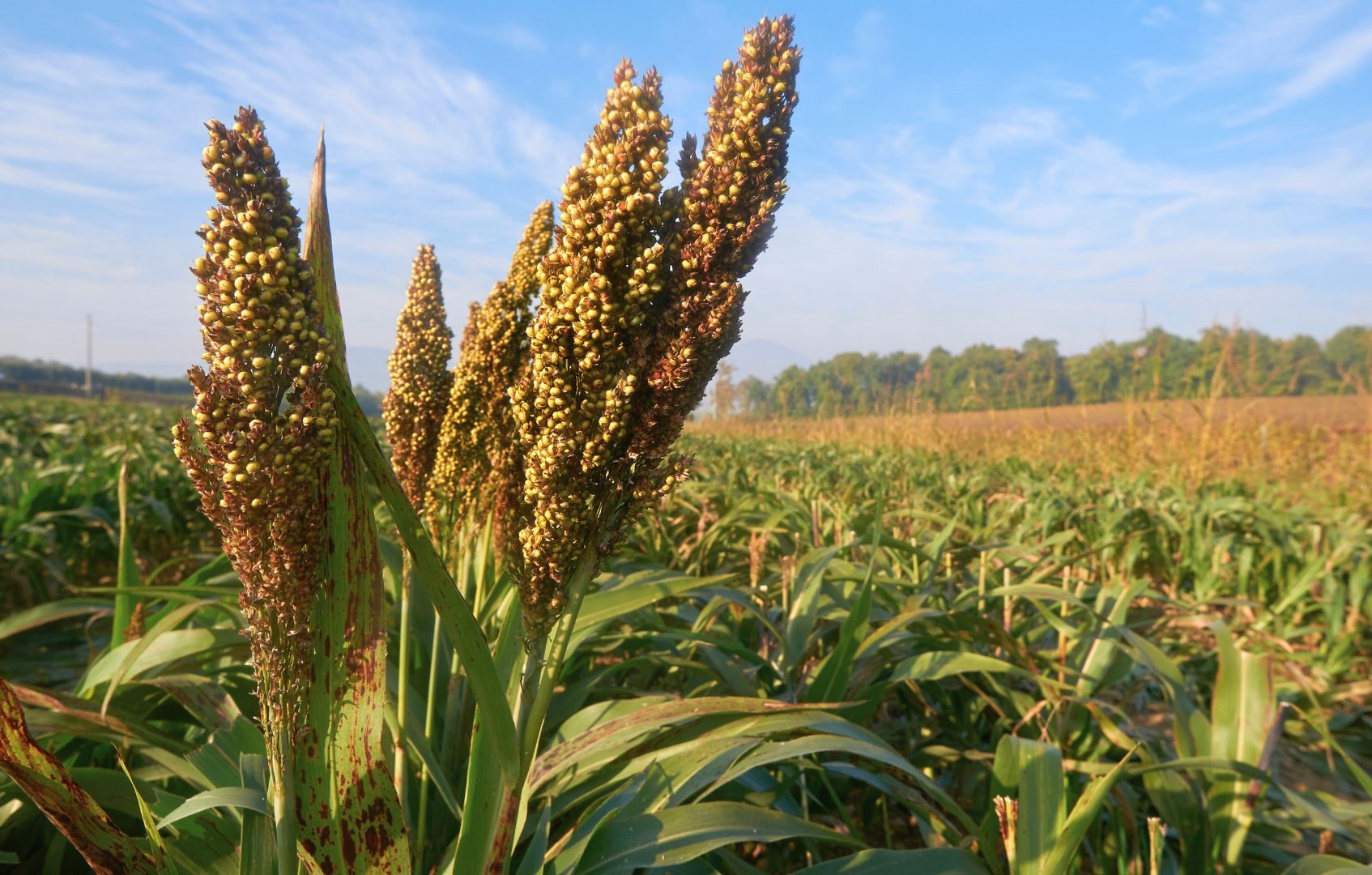Common Soil-Borne Diseases in Sorghum: Prevention and Management Strategies
What are the major diseases of sorghum?
Charcoal Rot (Macrophomina Phaseolina): This fungal disease affects sorghum by darkening and rotting roots and lower stems. It can lead to reduced plant vigor, lower seed quality, and yield losses, especially under dry and hot conditions.
Root Rot (various pathogens): Several pathogens, including Fusarium spp, Rhizoctonia spp, and Pythium spp, can cause root rot in sorghum. These pathogens infect and decay roots, leading to poor root development, reduced nutrient intake, and, ultimately, lower seed quality and yield.
Stem Rot (Sclerotium spp): Stem rot is caused by fungi such as Sclerotium rolfsii, which infects and rots the stems of sorghum plants near the soil line. It can cause lodging and reduce seed quality by affecting health and vigor.
Seedling Blight: Various fungi, such as Pythium and Rhizoctonia, can cause seedling blight in sorghum. These pathogens infect seeds or young seedlings, leading to damping-off, poor seedling emergence, and reduced stand establishment.
Anthracnose (Colletotrichum spp): Anthracnose can affect both the foliage and seeds of sorghum. It causes dark lesions on leaves, stalks, and panicles, which can, if severe, reduce seed quality and yield.
Downy Mildew (Sclerospora spp): Downy Mildew is a fungal disease that affects sorghum leaves, causing yellowing, stunting, and eventually death of seedlings. It can reduce overall plant vigor and seed quality.
Disease Prevention Practices in Sorghum
Management of these soil-borne diseases typically involves integrated approaches, including disease-resistant varieties, crop rotation, seed pre-sowing dress treatments, and cultural practices such as proper irrigation and soil drainage. Regular scouting and early detection of symptoms are important for timely management interventions to mitigate the impact of these diseases on sorghum seed quality and yield.
Further reading
- Sorghum plant: Characteristics, Importance, Distribution and Uses
- Sorghum bicolor – Sorghum seeds
- Flood irrigation systems and Water Use Efficiency
- Real-life examples of irrigation practices revolutionizing agriculture in dry areas
- The importance of Networking and Collaboration amongst Farmers In Zambia and Sub-Saharan Africa











































































